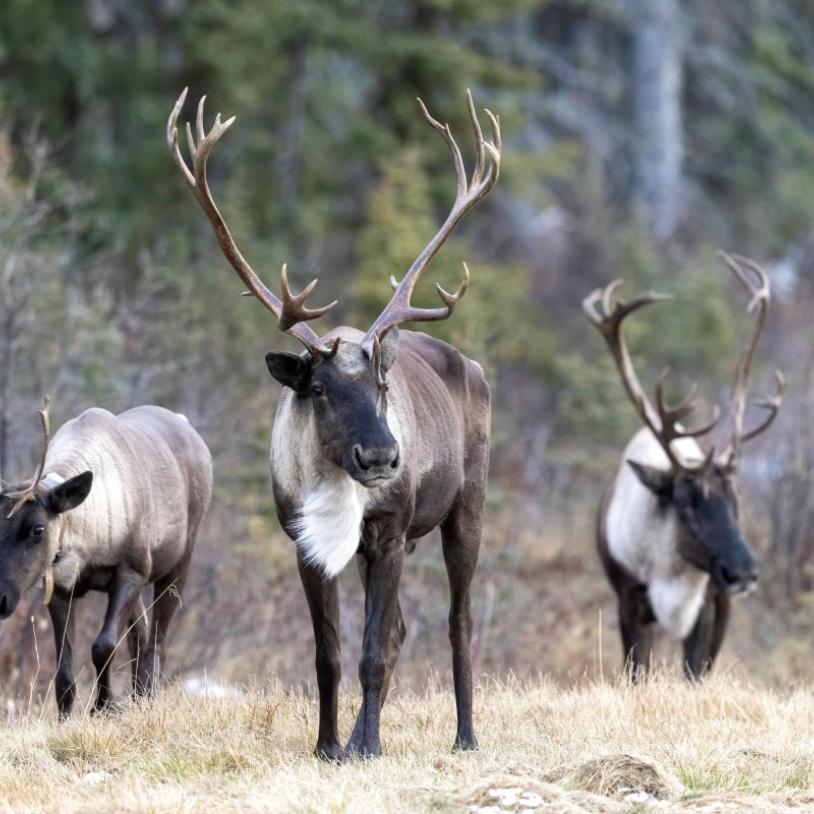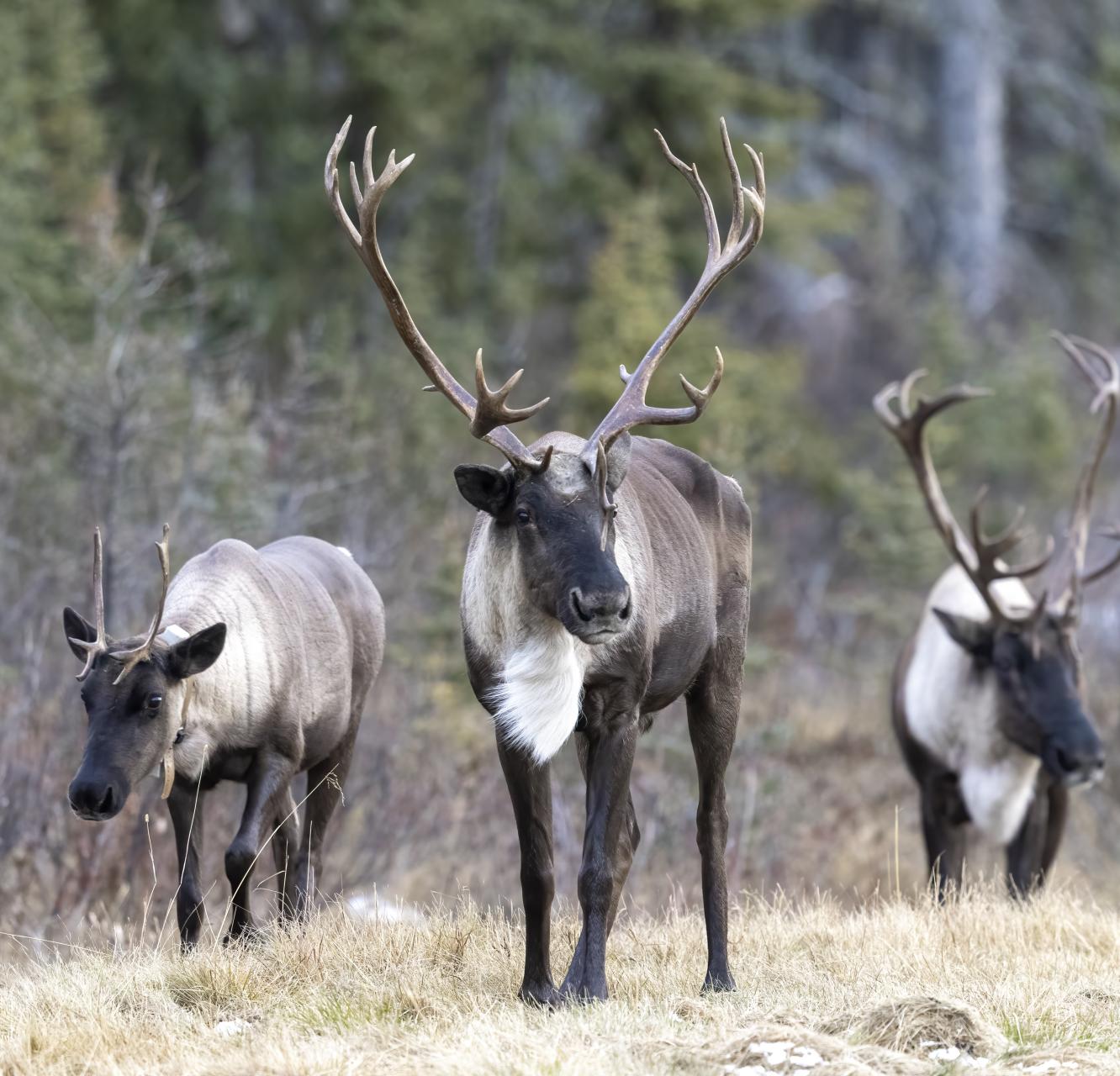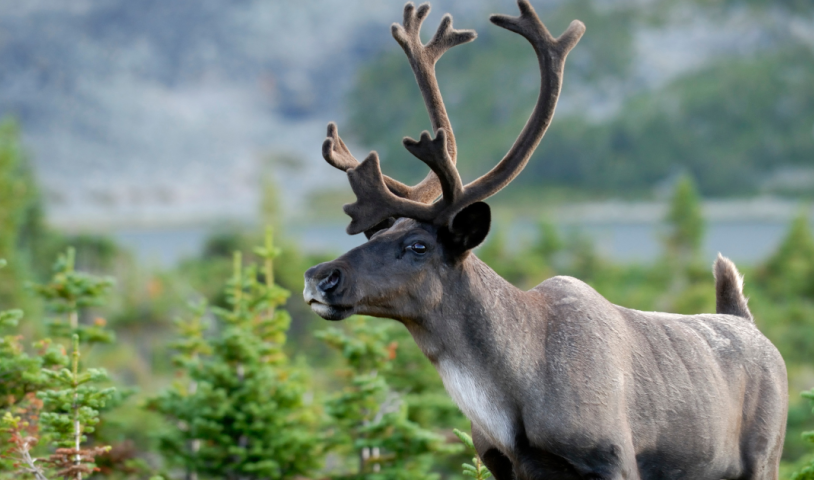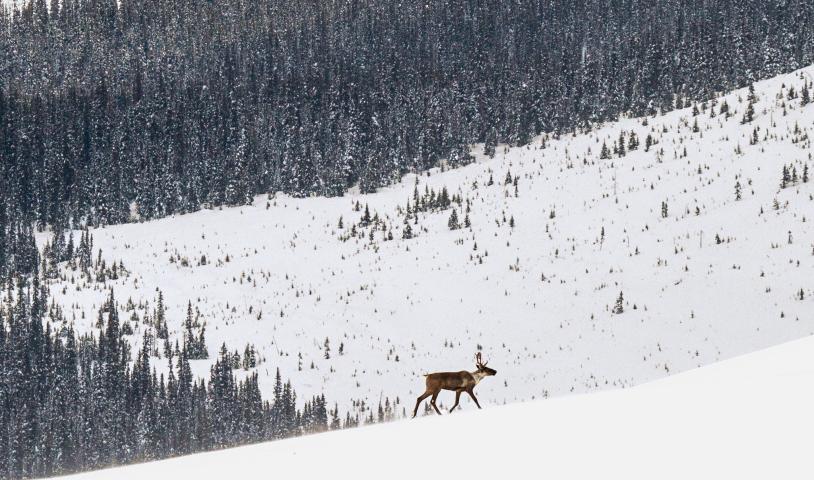Logging threatens Wells Gray caribou herd, petitioners say
Thursday, April 6, 2017
A petition campaign has been launched to stop logging outside the southern end of Wells Gray Provincial Park, saying the activity poses a further threat to the region's dwindling herd of southern mountain caribou.
The intent is to convince the federal environment minister that the provincial government is violating the federal Species At Risk Act by granting permits to log in the Upper Clearwater Valley.
Trevor Goward, a botany professor based in the area and spokesman for the Upper Clearwater Referral Group, described the valley as a buffer between the herd - which spends most of its time in old growth forests and the alpine - and predators.
"Caribou don't use it but what happens is when people log it, they bring it back to a stage that it supports deer and moose, which are the prey species of cougar and especially wolves," Goward said.
"And so the wolf populations and the cougar populations are enhanced and then the animals secondarily move into the park, the protected area, to take down caribou."
Caribou are more vulnerable than deer and moose due to the way they act.
"When a deer gets a predator it runs, it's a very fast runner, when a moose confronts it, it'll fight, whereas a caribou stands there because it's not adapted to that.
"The woodland caribou and the mountain caribou especially, has evolved over time to use old growth forest, which wolves don't spend much time in, as a kind of a shield from predation.
"But when you up the number of wolves and secondly, when you fragment these old growth forests, then the wolves find their way to the caribou and the caribou have no defence."
He said the southern Wells Gray herd has declined from 336 animals in 1995 to 121 currently.
"And that process is entirely attributable, according to biologists, to the logging immediately outside the park," Goward said.
In 2014, the Committee on the Status of Endangered Wildlife in Canada designated the species as endangered - the highest designation on the list - although under the federal act, they're regarded as threatened.
"The minister actually has to make a deliberation but the science says that they're endangered," Goward said.
Regardless, in 2014, the federal government brought in a recovery plan. The strategy includes maps designating critical habitat area for the caribou and they overlap where the logging is to occur.
"If it can be shown to the satisfaction of the Minister of Environment, now Catherine McKenna, the provincial government is not doing what it needs to do to protect an endangered species, which the caribou is, the federal government can come in and take over and its decisions override the provincial (decisions)," Goward said.
As part of this year's budget, the provincial government committed $27 million over three years for a caribou recovery program. Goward dismissed the program as nothing more than putting the species on "life support" through such misguided efforts as penning mothers and calves and wolf culls.
The logging is being conducted for Canfor.
In an email, a Ministry of Forests, Lands and Natural Resource Operations spokesperson said only one cutting permit has been issued for the area at this time and only to salvage beetle-killed pine. But opponents say the company is sitting on nine more blocks covering hundreds of hectares, and has plans to file for a number of additional permits.
In response to a request for comment, Canfor spokeswoman Corrinne Stavness said the timber will be milled at the company's Vavenby sawmill, east of Clearwater, which reopened in 2011 following a $24-million uprgrade.
"Over the past four years, Canfor has been undertaking the environmental analysis and public consultation work in order to prepare cutting permit applications covering an area of approximately 180 hectares in the Upper Clearwater area," Stavness said.
"Canfor has invested significantly in the best science possible to guide our planned activities in the Upper Clearwater area, using data that supports a sustainable approach to the environment and local wildlife such as mountain caribou."
She said the mill employs 175 people and generates $54 million per year of economic activity in the area.
"We recognize that some will remain opposed to all forest sector activity, regardless of the efforts made to employ best practices using expert guidance," Stavness said. "These viewpoints must be balanced with the views of other members of the community."
Goward maintained the Vavenby mill's days are numbered.
"Everybody knows this mill is going to shut down again in the next few years," he said.
"Nobody can give it a date, you couldn't publish it, but everybody knows it and when that happens the town is destitute."
He said the $27 million dedicated to the mountain caribou recovery plan would be better spent on helping communities move to a healthier economic base and to immediately halt logging in areas designated as critical habitat for the caribou.
As of Tuesday, the petition at change.org was within reach of its goal of 2,500 signatures





